Send Self-destructing Email Messages With Gmail
Some messages we send are meant to be confidential. The longer they languish in mail folders or inboxes the less likely it is that they will remain confidential. And sometimes, we send emails that we don’t want anyone to forward, copy, or print.
Gmail has a solution fit for a James Bond movie. If you use Gmail, you can send self-destructing messages that automatically disappear after a set interval of time. And it’s very easy to do.
1.) Click on the Compose button to compose an email as you normally do, click on the clock/lock icon on the toolbar at the bottom.
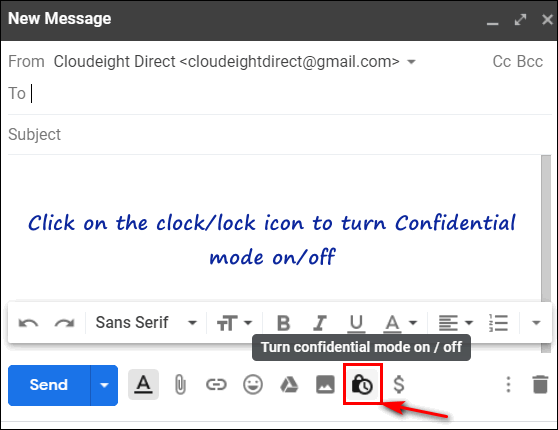
2.) Select the length of time you want to elapse before the email “expires” (self-destructs).
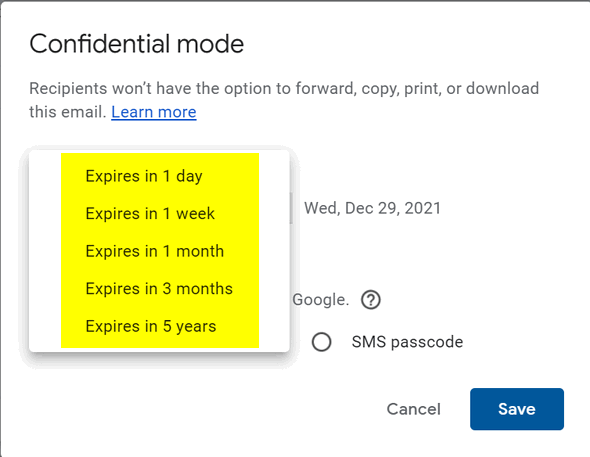

Under “REQUIRE PASSCODE” you can choose to require a passcode or not. If your recipient does not use Gmail, they’ll be sent a passcode generated by Gmail. If you choose “SMS passcode”, your recipient will be sent a text with a passcode.

4.) Compose your email as you normally do. You’ll see the expiration date in an overlay on the email. Your recipient will not be able to copy, print, forward, or download this email.
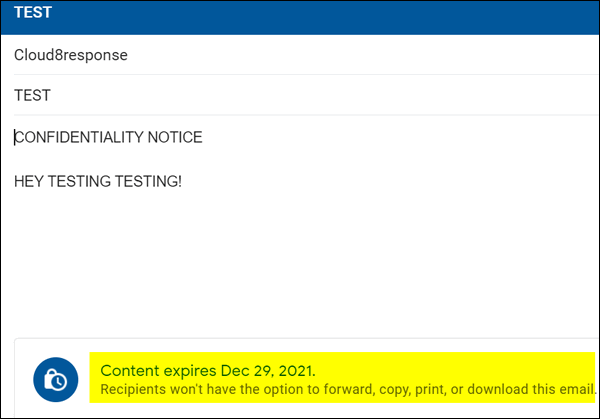
5. When your recipient receives your confidential email, they will see something like you see in the screenshot below. The subject of the message I sent was “TEST”.
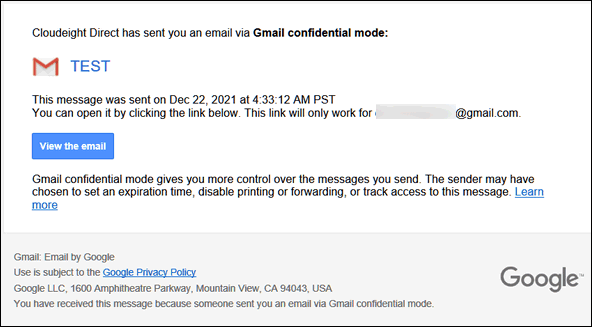
Clicking the “View the email” button reveals the confidential email along with its date of expiration.
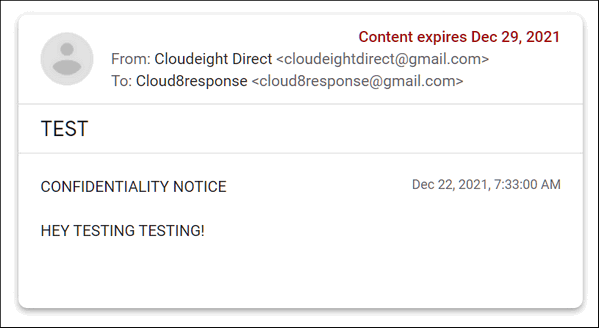
And that’s all there is to composing and ending a self-destructing, confidential email using Gmail.


I have the Snippet tool. Couldn’t I just use it to make a copy of the email and then mail that on?
I just tried it, took a snippet of it, and sent it to my alternate email. It worked. So, I guess if you really want to, you can find a way to defeat the confidentiality of the email.
Just like “Snapchat” and all the other “secure” apps, you can always defeat it with a screenshot… but a scrrenshot does not have all the identifiers an email does. An email shows your IP address, your ISP (even if you use webmail), the time and date your email was sent, and more. A screenshot only shows the date the screenshot was taken – and not much else. I really doubt a screenshot would prove valuable in a court of law since they can easily be manipulated. There’s a big difference between the data that comes with a normal email and the data that would come from a confidential email sent by Gmail – since the email exists only on Google servers and is deleted as specified by the composer of the email.
If all you need to do is prove someone wrong that a confidential email sent by Google can be circumvented by a screenshot -then that’s true. But that screenshot would hold very little weight in the legal sense. Nowhere near the weight a regular email will hold.
And sending it to yourself at one of your alternate email addresses makes no sense since you’re both the writer and the recipient of the mail. How could you write a confidential email to yourself?
Thank you for the explanation. Happy Holidays, enjoy!